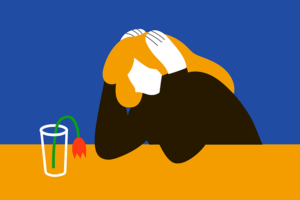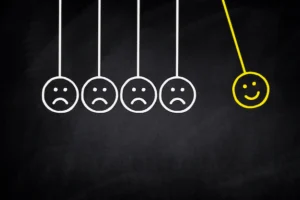By Nikki Mattocks
Since I was 14 years old, I’ve lived with recurring depressive disorder with psychotic symptoms, post-traumatic stress disorder and borderline personality disorder. These conditions make me feel incredibly lonely at times, even knowing there’s a community of billions of people across the world who also experience mental illness.
Mental illness is isolating. Sometimes I just can’t get out of bed; I can’t function. How do you explain to someone that due to the soul-crushing amount of pain in your heart, you’ll have to cancel meeting up for the fifth time in a row? How do you maintain friendships when all you want to do is drift away? How do you stay close with your family when you feel like your illness is a burden on them? It’s hard.
It’s not impossible to maintain relationships and luckily, I have some good friends and family. But there have been times in my life when I’ve had no one because people didn’t understand or didn’t want to take the time to understand. The only way out of the hole of loneliness with mental illness is understanding from others.
With mental illness, some people do not understand how severely it can impact your life, and just recently someone told me it was “just a mindset that can vanish if you have a winning attitude.” It’s because of these misconceptions that I often feel embarrassed to talk to friends or family about my conditions. I’m even too embarrassed to ask for help from mental health professionals because it is so misunderstood. I isolate myself and struggle in silence because I feel like no one has a clue how I feel.
Mental illness has left me feeling like I was disgusting and shameful. It’s made me feel like I’m not good enough. And it’s incredibly hard to get the courage to speak to people and meet new friends when you’re struggling.
I have good times and bad, but the heavy weight I carry has never gone away, and I don’t think it ever will. However, one of my mantras is that there is always a way out. With that said, here are a few things that might help you creep out of the hole of loneliness.
Talk To Other People With Mental Illness Through Apps Or Social Media Support Groups.
You can either talk on the phone to people through apps, such as talk life, or support groups on Facebook. Apps like this are great because you can connect with people across the globe and be supported even when you feel like no one close to you understands. Even if you don’t have friends or family, you can know that you’re never truly alone, and there will always be someone willing to listen.
Force Yourself To Be In The Same Room As Someone Else That You’re Comfortable With So You’re Not Physically Alone (Even If You Don’t Feel Like Talking).
When you’re not physically alone, it can sometimes be easier to remember that someone cares, and you can sit in silence until you feel ready to talk or feel a bit better. I’ve done this many times, especially with my brother. When I’m upset, he will sit with me because he knows it lessens my negative thoughts about feeling alone.
Look Back On Old Pictures And Remember That Life Is Worth Living And That If You Hold On You’ll Get There Again.
When you remember that you’ve had good times in the past, it’s easier to recognize that there can be good times again. When I look at old photographs of people who are not in my life anymore, I remember that someone cared about me before, and it gives me hope that someone new will care about me again. I cherish the memories of all my photos, because its moments like those that have shaped me into the strong person I am today. When I look at photos it helps me to know that I haven’t always felt lonely, and I won’t always feel lonely in the future.
Ask Friends Or Family To Write You Letters That You Can Read On Days You Don’t Feel Able To Leave The House.
Reminders like this are so important to read when you’re struggling because without them it’s easy to get trapped in the feeling of loneliness with no end in sight. When I have felt stuck in a hole, having reminders from family and friends that I’m loved has given me a ladder to climb out of the darkness. I have letters from people that include things they like about me, good memories of times we shared, and words of encouragement. Honestly, I don’t know what I’d do without them.
Tell People You Feel Lonely, You’d Be Surprised To Know How Many People Care.
I posted a status update last year when I was in the hospital saying I felt lonely, and I got so many messages from people saying that they are there if I want to talk. And I received many cards wishing me well. I’m lucky to have such good people in my life now, but when I didn’t, it helped me to reach out to online communities for support. I have posted in a support group before on Facebook saying I felt lonely, and I got hundreds of comments saying that I’m not alone and that people care. If you tell one person, or a thousand people online, the reaction is often better than you think.
Remember That You Are Never As Alone As You Feel.
There are billions of people in this world who live with or have experienced mental illness, and most of them have experienced loneliness because of it. This moment and this feeling—it will pass. The sun will set, and the sun will rise. You will meet people, you will lose people, then you will meet more people. A goodbye doesn’t mean you’ll be alone forever. I promise that there are people in this world who care about you.
Nikki Mattocks is an award winning mental health and human rights campaigner in the UK. She has spoken at parliament, shared her story at events, spoken in the media and runs a peer support group she started aged 17. Find her on twitter @ducksdietcoke or Instagram @nicolanikkijane
Source: https://nami.org/Blogs/NAMI-Blog/January-2019/Combatting-the-Loneliness-of-Mental-Illness




